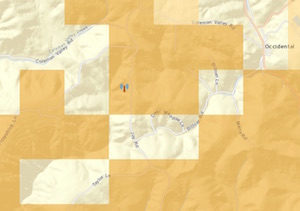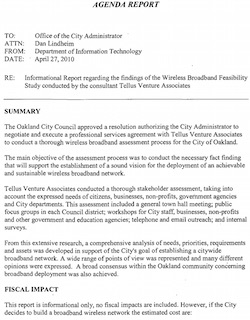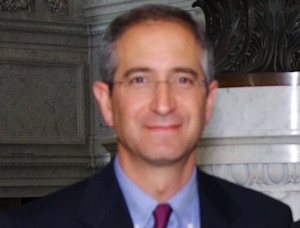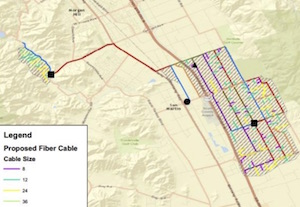Race targets Sonoma County for FTTH project

If you head west from Santa Rosa on State Route 12, and take the fork at Occidental Road, about halfway to the Pacific Ocean you’ll come to the town of Occidental. Residents there get broadband service from AT&T and Comcast, but if you go a little further west, the lines end. Race Telecommunications wants to build out a fiber to the home system there, and is asking the California Public Utilities Commission for a $9.1 million grant from the California Advanced Services Fund to do it.… More





![By Raul654 (Own work) [GFDL (https://www.gnu.org/copyleft/fdl.html) or CC-BY-SA-3.0 (https://creativecommons.org/licenses/by-sa/3.0/)], via Wikimedia Commons](https://www.tellusventure.com/images/2015/11/gorilla.jpg)

![By Wonderlane [CC BY 2.0 (https://creativecommons.org/licenses/by/2.0)], via Wikimedia Commons](https://www.tellusventure.com/images/2015/10/sf_traffic_jam.jpg)

![By France_cities.svg : Thomas Steiner Derivative work : Dsant (talk) Nnemo (France_cities.svg) [CC BY-SA 2.5 (https://creativecommons.org/licenses/by-sa/2.5)], via Wikimedia Commons](https://www.tellusventure.com/images/2015/11/level3_france.png)